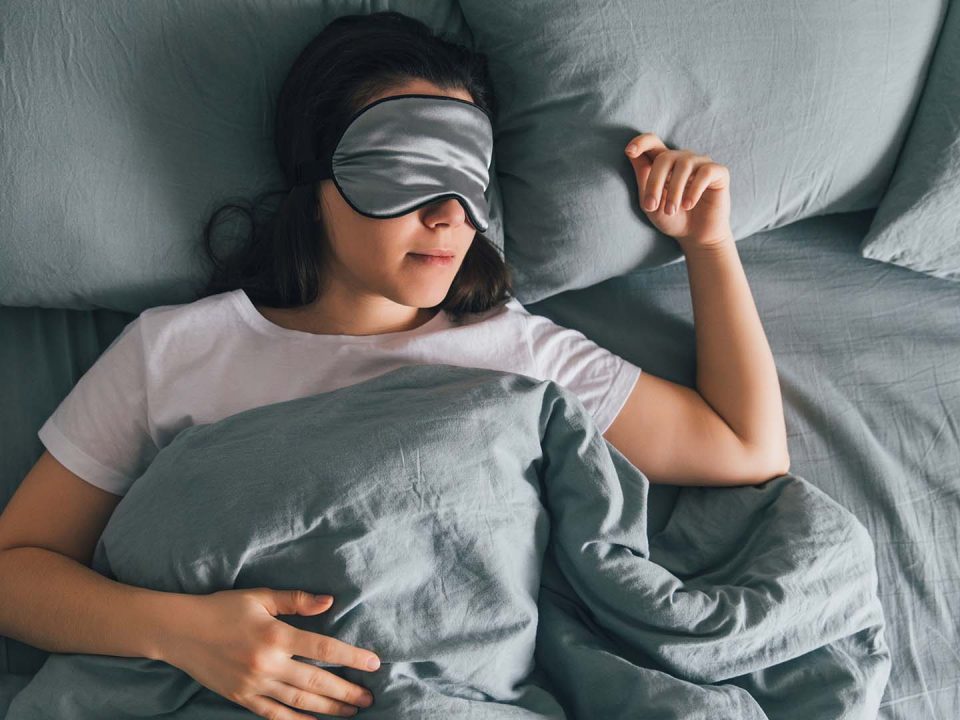Introduction
Sleep debt is a growing concern affecting millions of Americans, with nearly one-third of adults experiencing insufficient sleep regularly. According to the CDC, a staggering 30.5% of adults face at least one hour of sleep debt daily, creating a concerning pattern that impacts both physical and mental well-being.
Think of sleep debt like a bank account – when you consistently withdraw more than you deposit, you end up with a deficit that needs to be repaid. Recent studies from the National Health and Nutrition Examination Survey reveal that this sleep deficit isn't just affecting our energy levels – it's creating a public health challenge that crosses all demographic boundaries.
The impact is particularly striking when we look at the numbers. The CDC reports that women are more likely to struggle with sleep issues than men (17.1% vs. 11.7%), highlighting the gender disparity in sleep health. This growing trend has caught the attention of health experts, who warn that chronic sleep debt can lead to serious health complications.
What makes this issue particularly relevant is its connection to our modern lifestyle. The Sleep Education Resources indicate that our 24/7 society, coupled with increasing work demands and digital distractions, has created the perfect storm for widespread sleep deprivation. Understanding sleep debt isn't just about counting hours – it's about recognizing its role in our overall health and taking steps to address this crucial aspect of wellness.
The Science Behind Sleep Debt
Sleep debt isn't just about missing a few hours of rest - it's a complex biological process that affects your entire body. Think of it like a bank account where instead of money, you're dealing with rest. Every hour of missed sleep adds to your debt, and just like financial debt, it needs to be repaid.
Your body operates on two main sleep regulation systems. The first is your circadian rhythm, your internal 24-hour clock. The second is sleep pressure, which builds up the longer you're awake. When you don't get enough sleep, both systems get disrupted, leading to what scientists call sleep debt.
There are two types of sleep debt you might experience. Acute sleep debt happens when you pull an all-nighter or lose sleep for a few days. Chronic sleep debt builds up when you consistently short-change your sleep over weeks or months. According to research from Sleep Education, chronic sleep debt is particularly concerning because it's harder to recover from.
Your body responds to sleep loss in fascinating ways. Within just 24 hours of missed sleep, your reaction time slows, your memory suffers, and your mood takes a hit. The JAMA Network reports that even losing one hour of sleep can impact your performance the next day.
When sleep debt accumulates, your circadian rhythm gets thrown off balance. This internal clock helps regulate everything from hormone production to body temperature. Disrupting it can lead to a domino effect of health issues, making it harder to fall asleep at the right time and wake up feeling refreshed.
The good news? Your body is remarkably resilient. While you can't "bank" sleep in advance, you can take steps to pay back your sleep debt gradually. The key is consistency - aim for 7-9 hours of quality sleep each night to keep your sleep account in good standing.
Demographics and Risk Factors
Sleep debt doesn't affect everyone equally. Recent studies reveal fascinating patterns across different population groups. According to the National Health and Nutrition Examination Survey (2017-2020), a striking 30.5% of adults experience at least one hour of sleep debt regularly.
Women face greater sleep challenges, with 17.1% reporting difficulty falling asleep compared to 11.7% of men. This gender gap highlights the unique sleep pressures women often face, including hormonal fluctuations and caregiving responsibilities.
Income levels play a crucial role in sleep quality. The CDC reports that as family income decreases, sleep problems increase significantly. This correlation suggests that financial stress and limited access to comfortable sleep environments may impact rest quality.
Location matters too. Rural residents experience more sleep difficulties than their urban counterparts. The CDC data shows that people in nonmetropolitan areas consistently report higher rates of sleep disturbances, possibly due to different lifestyle patterns and healthcare access.
Age brings its own sleep challenges. While younger adults often accumulate sleep debt through work and social commitments, older adults face different obstacles. The National Council on Aging notes that adults over 65 experience unique sleep disruptions, though they're actually less likely to report severe sleep debt than their younger counterparts.
Education levels also influence sleep patterns. Those with lower educational attainment report more frequent sleep issues, according to the NHANES study. This trend might reflect differences in work schedules, stress levels, and awareness of sleep hygiene practices.
Health Implications
Sleep debt takes a serious toll on your brain and body. Your memory becomes fuzzy, and making decisions feels harder than usual. Research from the CDC shows that missing just one hour of sleep can impact your ability to focus the next day. Think of your brain like a smartphone battery - without proper charging, it simply can't perform at its best.
The mental health impacts go deeper than just feeling tired. Studies show that people with ongoing sleep debt are 2-3 times more likely to experience anxiety and depression. According to the National Council on Aging, poor sleep nearly doubles your chances of frequent mental distress. When you're running low on sleep, even small daily challenges can feel overwhelming.
Your physical health takes a hit too. Recent research from JAMA Network reveals that chronic sleep debt increases your risk of heart disease, diabetes, and weight gain. Your body's stress hormone levels rise when you're sleep-deprived, making it harder to maintain a healthy weight. Blood pressure often creeps up, putting extra strain on your heart.
The effects on your metabolism are particularly concerning. The CDC reports that consistent sleep loss disrupts your body's ability to process sugar, potentially leading to type 2 diabetes. Your hunger hormones also get thrown off balance, often triggering cravings for high-calorie foods.
Your immune system weakens when you're short on sleep, making you more vulnerable to illness. Sleep Education data shows that people who regularly miss sleep are more likely to catch colds and take longer to recover from infections. Think of sleep as your body's nightly repair session - skip it too often, and things start to break down.
Recovery Strategies
Getting back on track with your sleep doesn't have to be complicated. While you can't truly "catch up" on lost sleep, you can take steps to restore healthy sleep patterns. According to the Sleep Foundation, napping can provide a quick boost in alertness and performance. However, limit naps to 20-30 minutes to avoid disrupting your nighttime sleep.
Weekend recovery sleep might seem like a good solution, but research from JAMA Network shows it's not enough. Their study found that even when people slept longer on free days, they still carried significant sleep debt. Instead, focus on establishing a consistent sleep schedule. Go to bed and wake up at the same time every day – yes, even on weekends!
Creating a bedtime routine signals your body it's time to wind down. Try these evidence-based practices:
- Dim the lights 1-2 hours before bed
- Keep your bedroom cool (65-68°F)
- Use white noise if your environment is noisy
- Remove electronic devices from your bedroom
The CDC recommends gradually adjusting your sleep schedule by 15-minute increments. This gentle approach helps your body adapt without shock. If you're currently sleeping 6 hours but need 7.5, add 15 minutes every few days until you reach your goal.
Remember, consistency beats perfection. Start with one small change and build from there. Your body will thank you with improved energy, clearer thinking, and better overall health.
Modern Lifestyle Challenges
Today's fast-paced lifestyle creates numerous obstacles to getting quality sleep. Work demands often extend beyond traditional hours, with 35% of Americans reporting they check work emails before bed, according to the National Sleep Foundation.
Screen time significantly impacts our sleep quality. The blue light from devices suppresses melatonin production, making it harder to fall asleep. Studies show that 90% of Americans use electronic devices within an hour of bedtime, disrupting their natural sleep patterns.
Long commutes eat into potential sleep time. The average American spends 54 minutes commuting daily, according to Census Bureau data. This time crunch often forces people to choose between sleep and other essential activities.
Social commitments and family responsibilities create additional pressure. Parents of young children lose an average of 109 minutes of sleep per night, according to research published in Sleep. The desire to maintain social connections while juggling work and family often leads to sacrificing sleep.
Irregular work schedules further complicate sleep patterns. Shift workers face unique challenges, with 32% reporting sleep problems compared to 18% of day workers, according to the CDC. The combination of these modern lifestyle factors creates a perfect storm for sleep debt, making it crucial to recognize and address these challenges proactively.
Prevention and Solutions
Ready to take control of your sleep? Let's explore proven strategies that can help you prevent sleep debt and create lasting healthy sleep habits. Small changes in your daily routine can lead to big improvements in your sleep quality.
Start by setting a consistent sleep schedule – even on weekends. According to the CDC, maintaining regular sleep and wake times helps regulate your body's internal clock. Aim for 7-9 hours of sleep each night to meet your body's needs.
Create a relaxing bedtime routine that signals your body it's time to wind down. Try these evidence-based practices:
- Dim the lights 1-2 hours before bed
- Take a warm bath or shower
- Practice gentle stretching or meditation
- Read a book (not on a screen)
Speaking of screens, managing technology is crucial. The JAMA Network study shows that excessive screen time significantly disrupts sleep patterns.
Try these tech-smart habits:
- Enable blue light filters on devices
- Stop using screens 1 hour before bed
- Keep phones outside the bedroom
- Use an old-fashioned alarm clock instead of your phone
Your bedroom environment matters too. Keep it:
- Cool (65-68°F)
- Dark (use blackout curtains if needed)
- Quiet (consider a white noise machine)
- Comfortable (invest in quality bedding)
If sleep problems persist, don't hesitate to seek professional help. Sleep specialists can identify underlying issues and provide targeted solutions. The National Council on Aging reports that professional intervention can significantly improve sleep quality, especially for those with chronic sleep issues.
Remember, building better sleep habits takes time. Start with one change and gradually add more as you build momentum. Your future self will thank you for making sleep a priority today.
Sources and Further Reading
Want to dive deeper into the science of sleep debt? These trusted resources provide valuable insights backed by extensive research and expert analysis.
The Centers for Disease Control and Prevention (CDC) offers comprehensive data on sleep patterns across different demographics. Their research reveals striking differences in sleep quality between urban and rural populations, as well as variations across income levels.
For an in-depth look at sleep debt's prevalence, check out this recent JAMA Network study. Their findings show that 30.5% of adults experience at least one hour of sleep debt regularly – a concerning statistic that highlights the scope of this issue.
Need practical sleep education? The Sleep Education Resource Center provides actionable tips and strategies for improving your sleep quality. Their expert-backed advice can help you develop better sleep habits.
The National Council on Aging offers valuable insights into how sleep patterns change as we age. Their research shows that inadequate sleep nearly doubles the risk of frequent mental distress – a crucial finding for understanding the relationship between sleep and mental health.
These resources offer evidence-based information to help you understand and address sleep debt. Remember, quality sleep isn't just about comfort – it's essential for your overall health and well-being.
Conclusion
Your sleep matters more than you might think. The research is clear: about one-third of Americans are carrying sleep debt, putting their health and well-being at risk. But there's good news – you can take control of your sleep starting today.
Remember, quality sleep isn't a luxury – it's a necessity for your body and mind. Small changes can make a big difference. Start by setting a consistent bedtime, creating a relaxing evening routine, and prioritizing those precious hours of rest. Your future self will thank you.
Want to learn more about improving your sleep? Check out these trusted resources:
- The CDC's Sleep and Sleep Disorders page (CDC Sleep Resources)
- The Sleep Foundation's comprehensive guides (Sleep Foundation)
- The National Sleep Foundation's sleep health tips (National Sleep Foundation)
Take the first step tonight. Your path to better sleep – and better health – begins with one good night's rest. Sweet dreams!






